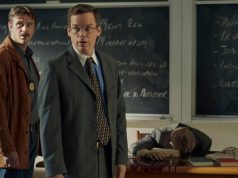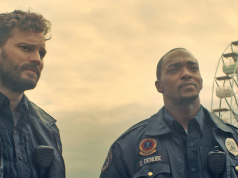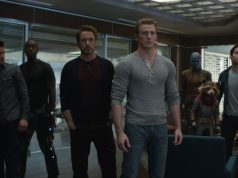Woody Allen is like a thousand years old, and he’s written and directed like a hundred movies. It shouldn’t be possible for him to make something as light-footed and witty as “Midnight in Paris.” But he did make it! I’ve seen it! His name’s right there in the credits!
Land sakes, is it ever charming, as well as consistently funny. It stars Owen Wilson, whose onscreen persona of laid-back, West Coast optimism is the opposite of a typical Woody Allen protagonist, yet turns out to be a perfect fit. Wilson’s infectious enthusiasm blends nicely with Allen’s screenplay, which is giddier than usual anyway.
Wilson plays Gil, a self-described “Hollywood hack” who has forsaken screenwriting to try his hand at a novel, a story about a man who owns a nostalgia shop. Gil is writing what he knows: he is caught up in the magic of the past, too. He particularly romanticizes Paris of the 1920s, when literary and artistic greats mingled at parties and in cafes. While on a visit to the City of Lights he tells his fiancee, Inez (Rachel McAdams), that he could imagine living there, enjoying the life of a bohemian writer. Inez can imagine no such thing.
Gil’s infatuation with Jazz Age Paris comes to fruition one night at the stroke of twelve, when he’s invited into a passing vintage automobile and finds himself traveling with F. Scott and Zelda Fitzgerald (Tom Hiddleston and Alison Pill), who take him to a party where the pianist is Cole Porter (Yves Heck). Gil has no idea how he’s traveled back in time, nor does Allen waste his time trying to explain it, because who cares? The 1920s drove by and picked him up, that’s all you need to know. In the morning, he’s back in the present. Then it happens again every night.
The scenes in the present follow a predictable but nonetheless droll pattern. The more nights Gil spends living it up with the Fitzgeralds and other luminaries, the more he finds his daily life unsatisfying, especially as it involves dealing with his fiancee’s boorish parents (Kurt Fuller and Mimi Kennedy) and her know-it-all friend (Michael Sheen). Gil isn’t just imagining that Paris must have been better in the ’20s. He’s actually sampled it and can say for sure that it is.
The nighttime scenes are the movie’s strength. Mingling with the likes of Gertrude Stein (Kathy Bates), Pablo Picasso (Marcial Di Fonzo Bo), Salvador Dali (Adrien Brody), and Luis Buñuel (Adrien de Van), Gil is a kid in a candy store — and it’s obvious Allen is, too. He wrote a terrific part for Ernest Hemingway (played by a scene-stealing Corey Stoll), portraying the author as the epitome of brusque manliness, prone to saying things like “Have you ever shot a charging lion?” and asking strangers whether they box.
Gil the character is having a great time; so are Wilson the actor and Allen the filmmaker. So is Marion Cotillard, playing a 1920s beauty who (irony alert) is nostalgic for Paris of the 1890s. So is Carla Bruni, who shows up as a museum guide. Allen has frequently looked to the past for inspiration, and surely he knows that many of his fans believe he’s stuck there. “Midnight in Paris” feels like a playful way of acknowledging his nostalgic tendencies while gently satirizing them. With everyone having fun, both in front of and behind the camera, it’s hard for a viewer not to find the whimsy contagious.
B+ (1 hr., 40 min.; )





